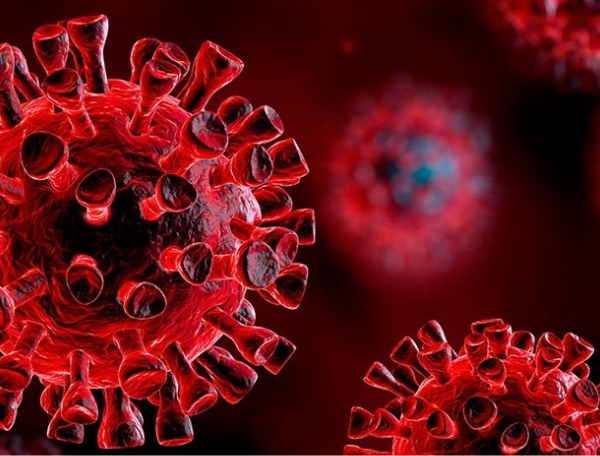


Outcomes research
Nutrition May Be the Key to Overall Kidney Health
Nutrition May Be the Key to Overall Kidney Health
The adage “You are what you eat,” often is thrown about. Most of the time, when food is thought about, it usually centers on how much weight it might cause us to gain or lose. But there is so much more to food than pounds. What is consumed can affect overall health outcomes, including chronic illnesses such as kidney disease.
Kidneys are the most common organ transplanted as chronic kidney disease (CKD) affects about 15% of adults in the U.S. Nationally, there were 25,499 kidney transplants in in 2019, and there are 92,000 on the waiting list for a transplant.

Linda W. Moore, PhD,
RDN, CCRP
While some cases of CKD are not preventable, other diagnoses can usually be avoided or managed through nutrition. One viable solution would be to reach those at risk for developing the disease through community nutrition intervention.
“Community nutrition is aligned with strategies under lifestyle medicine,” said Linda W. Moore, PhD, Associate Research Professor of Nutrition and Transplantation Surgery, Houston Methodist. “Lifestyle medicine is a medical approach that promotes lifestyle modifications to manage chronic conditions.”
The idea is that nutritional and dietary approaches can offer preventative and therapeutic interventions to manage obesity, metabolic syndrome and diabetes. Cardiovascular and renal diseases could also potentially be managed by lifestyle medicine.
“Proper nutrition and lifestyles play a crucial role in maintaining kidney health and preventing the onset or progression or onset of CKD,” Moore added.
Social determinants play a role in the availability of food. For many who live in lower-income areas, grocery stores are not always accessible or even available in the community. The options are usually convenience stores and dollar stores that serve as primary shopping locations, and the availability of fresh produce in these stores is slim or non-existent. While some do offer these foods, not all do. Also, people eat what they know. If a person is not used to eating fresh fruits and vegetables, it may not occur to him or her to purchase these items.
Kidneys are the most common organ transplanted as chronic kidney disease (CKD) affects about 15% of adults in the U.S. Nationally, there were 25,499 kidney transplants in in 2019, and there are 92,000 on the waiting list for a transplant.

“If you grow up on a farm where the fruits and vegetables are grown, that's what you get used to eating. Those are the foods that are at your table. In the city, we are less accustomed to doing that. I don't know what the reason is, but we don't do it. I think we have more access to quickly available foods like fast food. They are almost as affordable if not more affordable. But it doesn't have to be that way. It primarily comes down to choice, and we’re choosing the wrong stuff,” emphasized Moore. “Whatever your income or wherever you live, you have the ability to eat healthily. You can do it, and, to a great extent, eating healthy for the majority of people could mean just eating less.”
Nutrition education in communities can play a vital role by providing an overview on the impact of suboptimal lifestyle choices. Community nutrition initiatives could include community workshops that discuss the significance of community-based nutrition programs in promoting kidney health with an emphasis on: the diet quality index; management of diabetes and obesity; culinary medicine and food as medicine; precision nutrition approaches in community nutrition; accurate estimates of renal function; use of plant dominant diets; nutrition in living kidney donors; role of dietitians in medical nutrition therapy to slow CKD progression, health and nutrition literacy in kidney care; the role of social media in renal nutrition; the role of functional nutrition, naturopathic nutrition, and integrative and holistic renal nutrition in kidney health.

If you grow up on a farm where the fruits and vegetables are grown, that's what you get used to eating. Those are the foods that are at your table. In the city, we are less accustomed to doing that. I don't know what the reason is, but we don't do it. I think we have more access to quickly available fast foods, which are almost as affordable if not more affordable. But it doesn't have to be that way. It mostly comes down to choice. We’re choosing the wrong stuff.

Linda W. Moore, PhD, RDN, CCRP
Associate Research Professor of
Nutrition and Transplantation in Surgery
Exercise also plays a role in overall kidney health. A systematic review by Pourghazi et al. on the literature of childhood obesity and its impact on kidney function in later years found a significantly positive association of childhood obesity for adult kidney disease in 75% of examined studies.
“When I was young, the television that we watched just had dials on it. You had to get up out of your chair and walk over to the television to change the channel,” said Moore. “Now, we don't have to get up. We are falling into the sedentary quagmire, and we really have to wake up and put a stop to it.”
Erin Graham
March 2024







